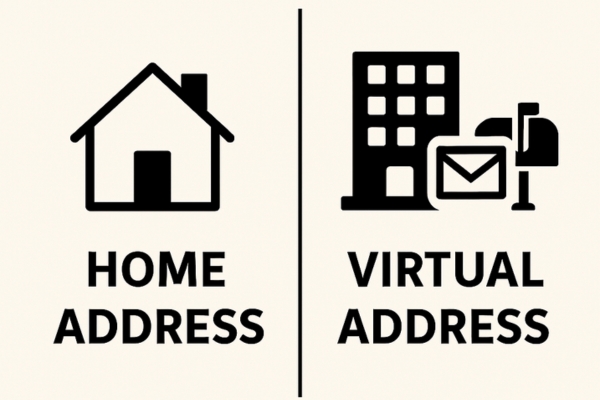Ever wondered why some businesses effortlessly attract local customers online, while others seem invisible? Choosing the best local directory service could be the game-changer you’ve been looking for. But with so many options out there, how do you pick the right one without getting overwhelmed?
Don’t worry—I’ve got you covered. In this simple step-by-step guide, I’ll share five easy yet essential tips to help you confidently choose the perfect local directory service for your business.
1. Clearly Identify Your Goals

Before diving into directory options, let’s clarify one simple thing: why exactly are you considering a local directory service?
Businesses typically look for directories to accomplish a few important goals:
- Improving local SEO so you can easily show up when people search on Google. Appearing at the top of local search results can significantly increase customer inquiries. This visibility directly translates into more leads, calls, and visits.
- Building quality backlinks to enhance your website’s overall authority. Backlinks from reputable directories signal trust and quality to search engines. As a result, your website ranks higher and gains credibility online.
- Gathering positive reviews that build trust and credibility. Customers rely heavily on reviews before choosing where to spend their money. Having a solid collection of positive feedback makes your business the clear choice over competitors.
- Driving foot traffic directly to your store. An effective local directory can guide nearby customers straight through your doors. Increased foot traffic from directory listings often means increased sales and community engagement.
Take a moment to jot down exactly which goals resonate most clearly with your business objectives. Knowing this upfront will quickly filter down your choices from hundreds of directories to a select handful.
2. Check Directory Credibility and Authority

Not all directories are created equal. Some carry more SEO weight and user trust than others. Here’s a quick and painless way to check:
- Google Search Test: Simply type the directory name into Google and hit enter. If it shows up on the first page—or better yet, at the top—it’s likely trusted by both users and search engines.
- User Reviews: Look for honest feedback from real businesses on independent review platforms like Trustpilot or Reddit. If other business owners have had positive experiences, there’s a good chance you will too.
If you’re comfortable tracking your results, using simple tools—like GoHighLevel or even basic Google Analytics—can help you see whether your directory listings are actually bringing in visitors or leads. It’s a smart way to make sure you’re investing your time (and possibly money) in listings that truly work.
3. Evaluate Traffic & SEO Potential

One of the main reasons to use directories is to boost your visibility on search engines. But how do you quickly check if a directory actually has good SEO potential?
Here’s the easiest method:
- Local Search Quick Test: Run a quick search using a phrase relevant to your business (e.g., “best hair salon near me”). Check which directory sites consistently appear on Google‘s first page. Those sites have strong SEO power.
- Simple SEO Checks: You can quickly use easy tools like Google’s Keyword Planner, Ahrefs, or Ubersuggest to briefly check the directory’s traffic and ranking power.
Remember, directories are fantastic for initial exposure. But many successful local businesses also strengthen their presence by maintaining a simple yet helpful blog on their own website. Blogging naturally complements directory listings, further boosting your visibility without much extra effort.
4. Free vs. Paid Directories

Another common question you might face is whether to choose a free directory listing or invest in a paid listing.
Here’s a straightforward breakdown:
- Free Directories are perfect when starting out. Examples include Google My Business, Yelp, and Bing Places. They offer decent initial exposure and basic SEO benefits without extra cost.
- Paid Directories typically come with enhanced visibility, analytics, featured listings, and more customization. Paid options make sense when they clearly bring measurable business results.
To make a wise choice, consider doing a simple “ROI check”: Will the increased visibility, SEO boost or potential customers from a paid directory listing justify the cost? To easily measure this, you might consider simple tracking solutions or tools such as GoHighLevel, which clearly show whether listings are genuinely benefiting your business.
5. Niche vs. General Directories

Directories usually fall into two main categories:
- General Directories: These platforms cover a wide range of industries under one roof, like Yelp or Yellow Pages. They’re great for broad visibility and often appear in generic local search results.
- Niche Directories: These are tailored to specific industries—think directories just for photographers, dentists, or restaurants. Because they focus on one audience, they often attract users who are actively looking for services just like yours.
Niche directories often come with a big advantage: they attract highly focused, ready-to-act users who are searching with clear intent. These platforms tend to be more respected within their industries, giving your listing more weight and trust.
To find niche directories in your field, just type your profession or service followed by the word “directory” into Google (for example, “real estate directory”). From there, use the same checklist you’ve learned—credibility, search visibility, and SEO potential—to decide if it’s worth listing on.
Putting It All Together: Choosing the Right Directory Made Simple
Selecting the right local directory service doesn’t have to be complicated. The process becomes easy when you clearly define your goals, check each directory’s credibility, evaluate its SEO potential, thoughtfully choose between free or paid options, and carefully consider niche-specific directories.
Directories are an excellent first step in boosting local visibility. While directories get you noticed quickly, taking steps to build your own engaging content, such as starting a simple blog, can naturally extend your visibility even further. However, it’s entirely optional and something you can comfortably pursue when you’re ready.
By using these straightforward tips, you’ll confidently navigate through choices and select directory services that truly benefit your local business.
Frequently Asked Questions

Directories that consistently rank high on Google, such as Google My Business, Yelp, Yellow Pages, and niche-specific directories, usually drive substantial local traffic.
It depends. Paid listings can provide excellent ROI if they offer enhanced visibility, analytics, or verified leads. Always test with a small budget first and use tracking tools to measure results.
They provide quality backlinks, improve local relevance, and enhance online visibility—signals Google loves, thus boosting your website’s authority and rankings.
Trustworthy directories have genuine user reviews, strong Google visibility, updated listings, and high-quality website design. They typically rank well on Google searches themselves.
Generally, yes. Niche-specific directories tend to attract highly targeted users with clearer buying intentions, offering more relevant exposure for your business.



